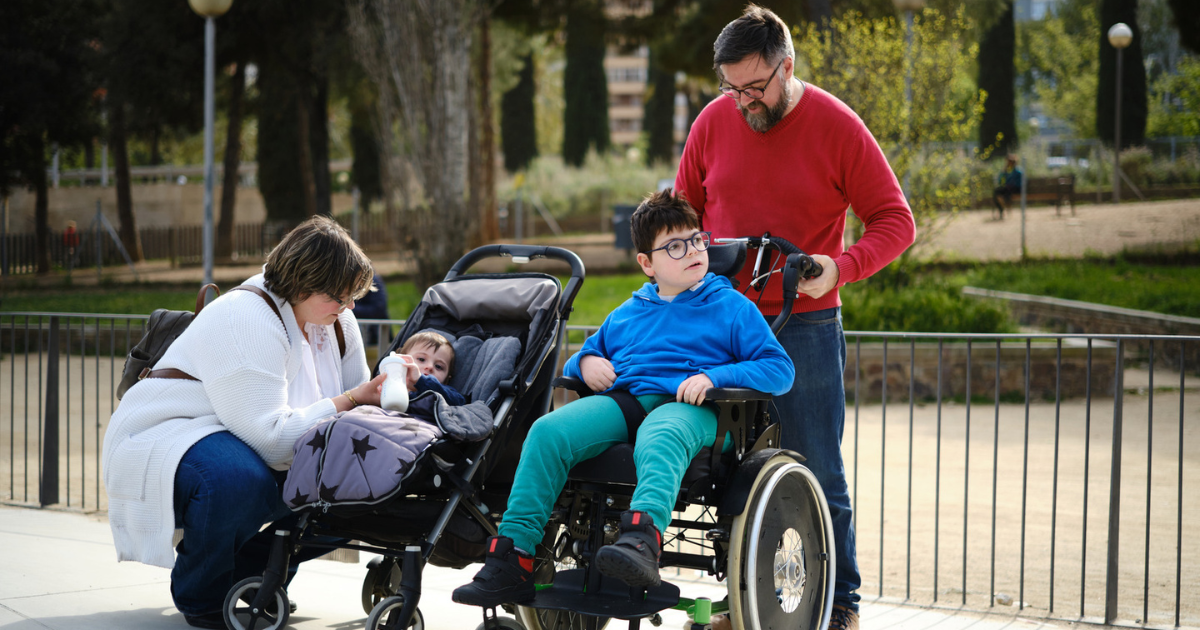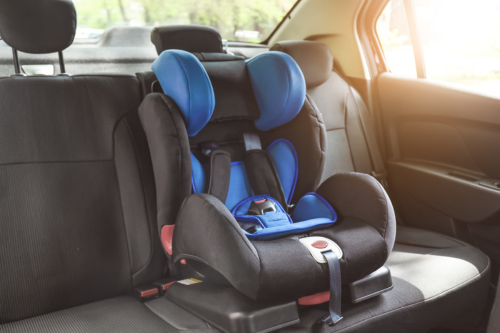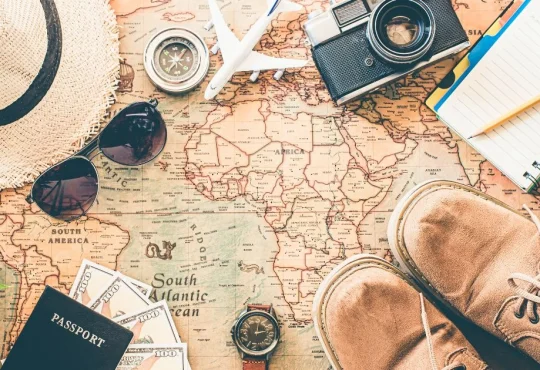
Traveling with children with disabilities requires thoughtful planning to ensure comfort, safety, and convenience. With a few fundamental essentials, you can make each journey smoother and more enjoyable for you and your child. From specialized child carriers to portable medical devices, here’s a curated list of must-have travel gear for kids with disabilities designed to make every trip accessible and stress-free for families. These travel essentials focus on mobility, sensory needs, and peace of mind so you can relax and enjoy every step of the journey with confidence and ease.
Must-Have Travel Gear for Kids with Disabilities: The Ultimate Guide to Easy Travel
Traveling with children with unique mobility or sensory needs requires thoughtful preparation and adaptive gear to ensure a smooth, enjoyable experience. From transport-friendly carriers to specialized beds, here’s an in-depth look at essential items that can make traveling more accessible and more comfortable for children with disabilities and their caregivers.
1. Specialized Child Carriers
A specialized child carrier can be invaluable when traditional strollers aren’t practical, such as navigating crowded areas or rugged paths. Options like the Kinderpack and We Carry Kevan Backpack are popular among caregivers because they offer ergonomic support and accommodate children up to 80 pounds, making them suitable for older children. These carriers give back support to caregivers while securely and comfortably positioning the child, reducing stress and allowing freedom to explore areas where strollers may be difficult to maneuver.
2. Airplane Seat Inserts
Children over two are required to sit in their seats for air travel. This can pose a challenge for children who need additional physical support. FAA-approved harnesses like the Kids FlySafe CARES Harness provide security and ensure the child remains comfortably seated during takeoff and landing. For added support, the Firefly GoTo Seat can be used alongside a plane’s seatbelt, providing padding and structural support that helps children sit comfortably for long flights. These inserts are also helpful during road trips, making it easier to transition from plane to vehicle or to use as needed in different modes of travel.
3. Portable Safety Bed
A familiar and safe sleeping space is crucial when staying in hotels or other accommodations. Portable beds, like the Safe Place Travel Bed, are inflatable with reinforced sides to prevent rolling, creating a secure sleeping environment. Designed specifically for children with special needs, these beds ensure peace of mind, helping prevent accidents and allowing the child to sleep soundly in an unfamiliar setting. Easy to pack and lightweight, the Safe Place Travel Bed brings home comfort on the go.
4. Portable Oxygen Concentrator
For children who rely on oxygen therapy, a portable oxygen concentrator is a lifesaver for extended trips. Devices like Oxygen To Go offer safe air travel solutions for children with respiratory needs. Many concentrator companies provide setup assistance, allowing caregivers to receive training on operating the unit in flight if needed. Portable concentrators are also essential for road trips, allowing families to travel confidently, knowing their child’s medical needs will be met.
5. Compact Wheelchair and Mobility Devices
Compact wheelchairs and portable assistive devices provide critical support for children who need mobility aids. Lightweight, foldable, and travel-friendly models make navigating airports, theme parks, and other high-traffic destinations easier. Many compact wheelchairs are airline-approved and designed to be easily transported, reducing the time spent checking in more extensive equipment and allowing families to move seamlessly between travel stages.
6. Adaptive Stroller
Adaptive strollers, like the Convaid Cruiser, are specially designed for children with mobility challenges and offer robust head and body support. Lightweight and foldable, these strollers are easy to navigate through airports and busy areas, making them a top choice for travel. Unlike traditional strollers, adaptive strollers cater to various physical needs and provide extra cushioning and postural support, ensuring the child’s comfort and stability throughout the journey.
7. Adaptive Car Seat
For car travel, an adaptive car seat such as the Special Tomato Car Seat offers additional head and body support for children with disabilities. These car seats are designed to handle extended sitting times, ensuring comfort and safety on long drives. Many adaptive car seats are FAA-approved, allowing families to use them on flights, making them highly versatile, and eliminating the need to switch seating options between transportation modes.

8. Portable Feeding Tube Station
A portable feeding tube station like the Go-Go Station organizes essential components in one place, making it easier to manage feeding needs while on the go. These stations often feature pouches and secure straps, allowing caregivers to easily access supplies in transit, on a road trip, or at a temporary accommodation. The Go-Go Station minimizes stress for tube-fed children and provides a smoother feeding process regardless of location.
9. Temperature Control Vest
A cooling or heating vest helps regulate body temperature for children with sensory processing needs, keeping them comfortable in different environments. Whether attending an outdoor event or in air-conditioned spaces, these vests help children maintain a consistent temperature, reducing sensory discomfort. The vests are lightweight, easily packable, and available in various sizes, making them adaptable for travel.
10. Wearable GPS Tracker
Wearable GPS trackers like AngelSense or Jiobit offer peace of mind in busy, crowded places. These devices allow caregivers to monitor the child’s location in real-time and are designed to attach securely to clothing or backpacks. GPS trackers often come with safety features like geo-fencing alerts, enabling caregivers to receive notifications if a child wanders outside a designated area. This technology is helpful in large venues, public spaces, or tourist destinations.
![]()
11. Portable Sensory Kit
A portable sensory kit is valuable for helping children with sensory needs stay calm during overstimulating moments. Items like fidget toys, noise-canceling headphones, and weighted lap pads can be easily stored in a compact bag, providing quick relief when needed. Sensory kits are ideal for children prone to sensory overload in unfamiliar environments, allowing caregivers to create a familiar, calming experience regardless of the surroundings.
12. Inflatable Travel Footrest Pillow
For children who experience discomfort during long flights or car rides, a travel footrest pillow can help maintain circulation and relieve leg strain. These inflatable pillows are easy to carry and fit well in tight spaces, offering leg support to keep children more comfortable. Footrest pillows benefit long-haul flights, allowing kids to stretch out and find a more relaxed position for sleeping or resting.
13. Compact Nebulizer
Children who require respiratory treatments can benefit from a compact, battery-powered nebulizer. Devices like the Philips Respironics InnoSpire offer efficient treatment times and come with a travel case, making it easy to pack and use during trips. A portable nebulizer ensures that children can continue their respiratory care routine without disruptions, making it essential for travel.
14. All-Terrain Wagon
An all-terrain wagon with safety harnesses like the WonderFold Wagon is a versatile solution for outdoor environments. These wagons are spacious, accommodating mobility needs, toys, and sensory items all in one. Built for rugged terrain, they provide a secure, enclosed space for children, especially in areas where strollers may need to be more practical. The WonderFold Wagon also has foldable capabilities, making it easy to transport and set up at various locations.
15. Lightweight Therapy Swing
A portable therapy swing can provide calm and comfort for children with sensory needs. Swings like the Harkla Therapy Swing can be hung in multiple settings, providing a safe, soothing environment for relaxation or sensory engagement. Therapy swings are compact and easy to pack, allowing caregivers to bring along a familiar item that helps children manage sensory overload in new places.
16. Portable Folding Toilet Chair
When accessibility is limited, a folding toilet chair provides a reliable restroom solution for children with mobility challenges. These chairs are lightweight, foldable, and compact, making them easy to bring. Portable toilet chairs help maintain hygiene during travel and provide caregivers a flexible option when standard restroom facilities may not meet accessibility needs.
These travel essentials can significantly improve travel experiences for families with children who have disabilities. Each piece of equipment is carefully designed to enhance comfort, safety, and convenience, allowing families to focus on enjoying their trip while meeting their child’s unique needs.
Key Safety and Comfort Tools for Journey Peace of Mind
When it comes to ensuring comfort and reducing sensory stress, these tools are must-haves:
Pump Holders for Feeding in Transit: Long road trips can be challenging, especially when your child is tube-fed. The Flying Squirrel pump holder, which hangs behind the driver or passenger seat, simplifies feeding on the go, making road travel less stressful.
Portable Power Banks and Extension Cords: For children dependent on medical devices, a portable energy bank ensures devices stay charged even during lengthy road trips or camping. Power banks and an extension cord are beneficial when outlets are scarce.
Quiet Comfort Spaces: Create a familiar, quiet environment by bringing a pop-up sensory-friendly tent or a blanket holder with plastic walls. This allows children to have a calm area, reducing overstimulation, whether you’re at a bustling theme park or a public venue.
Supplies for Making and Storing Food Blends: For children on strict diets or who are tube-fed, a portable blender and pouch-making kits, like the Infantino Pouch Station, help manage nutrition. This setup allows parents to prepare customized, safe meals wherever they are without relying on unknown local ingredients.
Sensory-Friendly Headphones and Soothing Items: Bring noise-canceling headphones or ear defenders to reduce noise sensitivity. Weighted blankets or sensory compression vests can also help by providing calming physical feedback during extended trips or in noisy public areas.
Sleep-Aiding Accessories: Maintaining your child’s sleep routine can be critical for reducing travel stress. Compact sleep-aid items like weighted lap pads or inflatable cushions can help them stay comfortable in unfamiliar surroundings.
Necessary Documentation and Planning Tools for Hassle-Free Travel
Documentation and organized packing are essential when traveling with children with disabilities. They ensure you have everything you need without added stress.
Medical and Access Documentation: Carrying comprehensive documentation on your child’s medical needs, medications, and accommodations can save time and avoid misunderstandings. For ease, you can store these digitally using an app like Mejo or keep physical copies in a secure, waterproof case.
Packing Checklist: A thorough checklist can be a game-changer for parents. Include all necessary medical supplies, charging cables, sensory items, and paperwork. Digital lists in apps like Evernote or Google Keep make it easy to update and check items off as you pack, ensuring nothing is forgotten.
Travel Insurance with Medical Coverage: Medical emergencies can happen unexpectedly, and comprehensive travel insurance can alleviate worry. Look for plans covering pre-existing conditions and accessible healthcare provider networks within your travel destination.
Apps for Emergency and Health Needs: Certain apps, such as ICE (In Case of Emergency) or GPS trackers, can help manage emergencies. These apps are beneficial when visiting large venues or traveling in unfamiliar areas.
Making Travel Enjoyable and Stress-Free with the Right Essentials
Traveling with children with disabilities doesn’t have to be daunting. With the right travel essentials, from adaptive carriers to sensory kits, you can prioritize comfort and convenience, ensuring an enjoyable experience for everyone. These thoughtful tools help make travel smoother, allowing you to focus on creating memories rather than managing challenges.
Ultimately, preparation is key. Packing the right travel essentials that cater to your child’s unique needs sets the stage for a safe, comfortable, and joyful journey. So, embrace the adventure with confidence—happy travels await!





